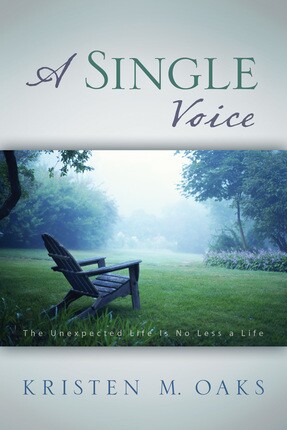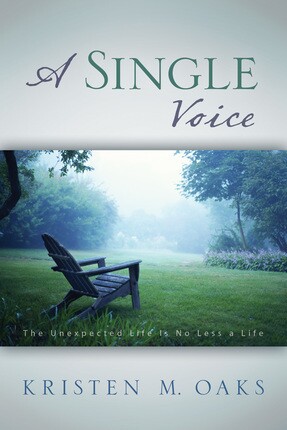For daily gospel-based relationship insights, join Jonathan’s Facebook group. To submit a question for Jonathan, click here.
I was raised by parents who were very much in love . . . and I think it messed me up. Sure, I learned wonderful relationship skills and observed plenty of romance, but that’s just it: I was so enamored with what my parents had that I was actively looking for a spouse at the age of 5. I had it all planned out: we’d date through school, I’d serve a mission, she’d be waiting for me when I got home, and voila! Instant family. This fantasy, combined with my excitable personality and frequent exposure to the doctrine of eternal marriage, practically ensured that I would inadvertently frighten away potential marriage partners by trying too hard.
I graduated from BYU without a wife, and believe me it was not for lack of trying. I wanted my money back. A couple of years later I was wrapping up graduate school at Auburn and was well past “menace-to-society” age when I finally met my sweetheart. It had been nearly a decade since the last of my siblings had gotten married. I’d watched friends, relatives, and ex-girlfriends tie the knot and start families. I was happy for them but had to fight off feelings of jealousy. I had experienced the pangs of loneliness, the self-pity of having my heart broken, and the desperation of ringing in year after year as an unwilling bachelor. What’s more, I had to endure the well-intentioned meddling and prying inquisitions of married people who had forgotten (or never knew in the first place) how complicated the dating scene can be.
I am part of two different step-families. My mother passed away and my father remarried, and my wife was divorced with a son when I met her. I’ve experienced a lot, but the advice that follows is not just from my own life. Combined with my career as a therapist, my years teaching the dating class How to Avoid Falling in Love with a Jerk, and events I’ve been asked to speak at, I’ve interacted with thousands of single adults. Their ages have ranged from 18 to 70. Their stories about the difficulties of being single in a family-focused faith have been eye-opening, to say the least.
I’d like to share some lessons I’ve learned in my practice, from loved ones who’ve been divorced or widowed, from singles I interact with at classes and firesides, and from my own life. Although different people in different circumstances require different counsel, I have found three key principles which, if applied, will help Latter-day Saint singles to date well and thrive on their own in the meantime:
Build a life worth living without a partner. Be the type of person you want to attract. Be open to options you’ve not yet considered.
Allow me to address each of these briefly.
For more insights into singles in the Church, listen to the All In podcast with Studio C's Mallory Everton below. Or find more meaningful podcasts here.
1. Build a life worth living without a partner.
In my single years, I had become so fixated on finding someone to spend eternity with that I felt incomplete without her. My life, I thought, couldn’t truly start until she was in it. This is, of course, a self-defeating interpretation of the doctrine that “it is not good for man to be alone” (Genesis 2:18) and “neither is the man without the woman, nor the woman without the man in the Lord” (1 Corinthians 11:11).
I realized that we don't need to develop a complex if we don’t have our eternal companion right this second. I’m not suggesting that anyone stop trying. Of course, we ought to date and prepare ourselves and otherwise do what Church leadership has counseled. What I am saying is that, if we’re doing all we can, then there’s no shame whatsoever in being single, even if we’ve past what is considered “normal marriage age” in our culture.
Remember the counsel of Elder Neal A. Maxwell: “The issue for us is trusting God enough to trust also His timing. If we can truly believe He has our welfare at heart, may we not let His plans unfold as He thinks best?” 9Even As I Am, Salt Lake City: Deseret Book, 1982, 93). I can certainly attest to the truthfulness of this doctrine. With all due respect to the other wonderful women that I’ve dated, I’m so grateful that things worked out the way they did. Although I pled with Heavenly Father to let those relationships blossom into more, it turns out I’m happiest with the person He guided me to years later (and I’m sure my ex-girlfriends are happier with their husbands).
The Lord will not deprive the faithful with any opportunity or blessing. Remember that “all your losses will be made up to you in the resurrection provided you continue faithful” (Teachings of the Prophet Joseph Smith, sel. Joseph Fielding Smith [1976], 296).
Of course, potentially waiting for the hereafter to find a companion is little of comfort to those who want someone to hold and to make memories with in the here and now. It’s fine and natural to want that. But as soon as that want becomes a need, you’re likely to get hurt. Why? As soon as you need to have a man or a woman in your life right now, you’re in love with the idea of being in love.
That’s when you scare people away by coming across as desperate. That’s when shady characters can use your neediness to manipulate and use you. I look at it this way: if you aren’t able to swim on your own, if you’re afraid of drowning in loneliness and despair, you’re going to cling to whatever piece of slimy driftwood that comes floating by in order to keep from sinking. The irony is, they’ll ultimately push you under and deeper than before.
The best way to combat this is to build a life worth living on your own. Even if you don’t meet your mate in mortality you can still love your life by filling it with service, developing your relationships with friends and family, and magnifying your talents by pursuing worthwhile goals. This will make you less desperate, less needy, and more able to swim on your own until you find a nice lifeboat or swimming partner.
Sister Kristen Oaks, wife of Elder Dallin H. Oaks, did not marry until she was in her 50s. She spoke at aCES fireside about how to make the most of one’s time as a single adult: “I would also say to you, be balanced. As a single woman, I had to go forward. I got a doctorate and became so involved in my profession that I forgot about being a good person. I would say to everyone in this room, always remember that your first calling is as a mother or as a father. Develop those domestic talents, talents of love and talents of service. As a single, I had to go searching for service projects. . . . I think about the painful times in our lives . . .I would ask you to consecrate that to Heavenly Father. InHelaman 3:35 we read that if we yield our hearts unto God, all our actions serve to sanctify us, and so any time becomes a blessed time” (Dating vs. Hanging Out, CES Fireside, May 1, 2005).
No mortal man or woman can “complete” you. Jesus Christ alone makes you complete. By keeping His commandments, feasting on His words (2 Nephi 32:3), relying on His grace, and developing a virtuous mind, you’ll gain a confidence and inner peace that are unlike any other (D&C 121:45). This confidence and peace will carry you through the trials of this life and give you the strength to settle for nothing less than a temple marriage with a person who loves the Savior, lives the gospel, and is 100 percent committed to you.
Incidentally, it was this confidence and peace of which I speak that allowed me to win the heart of the woman I now call my eternal companion. Serving others, pursuing worthwhile goals, developing my talents, treasuring friends and family, and drawing close to the Lord helped me to realize that, even though I loved her, if it didn’t work out I’d be okay. That calmed me down. It helped me to not be pushy, needy, or suffocating. It was only when I was at peace with being single that I was truly ready to get married.
2. Be the type of person you want to attract.
I once had a client in my office for therapy (I share this story with his permission) who told me that he’d probably never marry because his standards were too high. When I asked him what those standards were, he offered to bring me a list he’d prepared, which he did in the next session. The lengthy list of traits required of his “perfect woman” read something like this:
Must be an excellent cook.
Must be great with children.
Must have an advanced degree.
Must have a successful career and be financially independent.
Must have an amazing body, eating well and exercising every day.
Must be neat and tidy.
Must be a home-owner.
Must be patient.
Must be funny.
Must love sports and video games.
The list went on and on from there. With each requirement, this dream female was sounding more and more like a cross between Mary Poppins and Wonder Woman. I took my client’s list, turned it towards him, pointed at it, and said: “Here’s the thing. The woman you describe here, what does her list look like?” The man looked like ice water had been thrown on his face. He realized that he wasn’t living up to the standards that he had set for his mate. He had to be the type of person that he wanted to attract, and if he expected her to embrace and tolerate his imperfections, he’d better be prepared to embrace and tolerate hers.
God has said that “intelligence cleaveth unto intelligence, wisdom receiveth wisdom, truth embraceth truth, virtue loveth virtue, light cleaveth unto light, mercy hath compassion on mercy and claimeth her own” (Doctrine and Covenants 88:40). I had a bishop once who applied this scripture to dating, and his counsel has never left me: be the type of person that you want to attract. If you want an honest person, be an honest person. If you want a loyal partner, be loyal. If you want someone hard-working, work hard. If you don’t want to be pressured into a relationship, respect the right of others to make their own choices as well.
3. Be open to options you’ve not yet considered.
Many of us entertain long-held fantasies of what our spouse will be like. We dream that our spouse will have served an honorable full-time mission, that they won’t have “a past,” and that we will give (and receive) a wedding gift of mutual virginity. The sad side effect of these righteous desires is that many righteous men and women aren’t given a chance because of S.S.T.A.D’s (Silly Stigmas That Aren’t Doctrinal).
Persons with “a past,” including drug abuse and violations of the law of chastity, are often ignored on the dating scene. I’ve heard it from their own mouths. They feel treated as if they were somehow “unclean,” regardless of their current standing in the Church and the totality of their repentance. I submit, however, that current dedication and obedience to the Lord, including how long a person has been on the straight and narrow, is more important than past mistakes. Jesus Christ has said that “he who has repented of his sins, the same is forgiven, and I the Lord remember them no more” (D&C 58:42).
If the Lord has let go of their past, shouldn’t we do the same? Remember what God told Peter: “What God hath cleansed, that call thou not common” (Acts 10:15). Now, I’m not saying that a person’s past isn’t an important thing to consider, especially as it might influence current and future patterns of behavior. What I am saying is that no one should be dismissed outright because of past mistakes. Remember the bumper stickerquoted by Elder Uchdorf: “Don’t judge me because I sin differently than you do” (“The Merciful Obtain Mercy,” General Conference, April 2012).
One of my best friends never served a mission. To this day he wishes he had. However, for years his dedication to the Lord, righteousness in magnifying the priesthood, and dedication to his wife and children have been nearly unparalleled. On the other hand, I know of many homes that have been destroyed and many marriages ruined by returned missionaries who have broken the hearts of their spouses and children. Missionary service is important; I served an honorable two-year mission and it has blessed my life every day, but in and of itself a mission is insufficient as a gauge for whether someone will be a good mate who is true to gospel covenants.
Some may say: “I don’t judge them, but for the sake of my future children I don’t want to date them, fall in love with them, or marry them. After all, how can we teach our children to obey commandments one of us has failed to keep?” My response is to take this attitude with your kids: “Give thanks unto God that he hath made manifest unto you our imperfections, that you may learn to be more wise than we have been” (Mormon 9:31). If you end up marrying someone who has made serious mistakes in the past, provided that they’ve fully repented, then support them in following the example of Alma the Younger, who taught his children the painful consequences of sin, the difficult process of repentance, and the redemption and peace that comes through Jesus Christ (Alma 36:12-21).
Now, of course, you may end up with someone very much like the person you’ve always dreamed about, and that’s fine. Just remember that both the faithful son and the returning prodigal were welcome at their father’s table (Luke 15:29-32).
Another stigma that some struggle with is dating someone who is divorced and/or already has a child. You may get hung up on the notion that this person has already been intimate with someone else, or that you aren’t the child’s biological parent, or that step-family formation can be difficult. I would encourage all to read Elder Dallin H. Oaks'sexcellent remarks on the subject (“Divorce,” Ensign, May 2007), which demonstrate why this belongs with the Silly Stigmas That Aren’t Doctrinal. The fact that a person is divorced does not make them, if you’ll pardon the vulgar expression, “damaged goods.” Divorce in and of itself doesn’t make anyone a sinner. They are as precious and wonderful to God as you or I.
I don’t presume to speak for everyone, but I am sealed to a woman who had previously been married and divorced. She had a son before I met her. Thankfully his father is a good man and a loving dad, but becoming part of a step-family wasn’t necessarily easy for any of us. However, I can honestly say that I love that boy as much as my own children and marrying her was the best decision I have ever made. She is a great source of spiritual strength for me. She is my best friend. She is my greatest blessing.
There is much more that could be said on the subject of thriving as a Latter-day Saint single. I recognize that I am merely skimming the surface here. That said, I testify that building a life worth living on one’s own, working to become the type of person one wants to attract, and being open to new options can bring peace and stability to the lives of Latter-day Saint singles and allow them to live joyous lives. Although I have much more to share (and will in future months), I’d love to read your insights on the subject. Please sound off in the comments on social media, and if you know a Latter-day single who might benefit from this article, I hope you’ll share it with them.
I leave you my witness, from personal experience, that the Lord is mindful of each one of us, that He wants to bring us greater happiness than we’ve ever known, and that trusting Him and His timing during our loneliness can bring peace and growth. I bear witness that single adults are as precious in God’s sight as anyone else. Though we are a family-focused faith, there is no shame in being a Latter-day Saint single. You are among the finest souls in the kingdom.
For more uplifting insights about living an abundant like as a single Latter-day Saint, check out Sister Kristen Oaks's book, A Single Voice.



